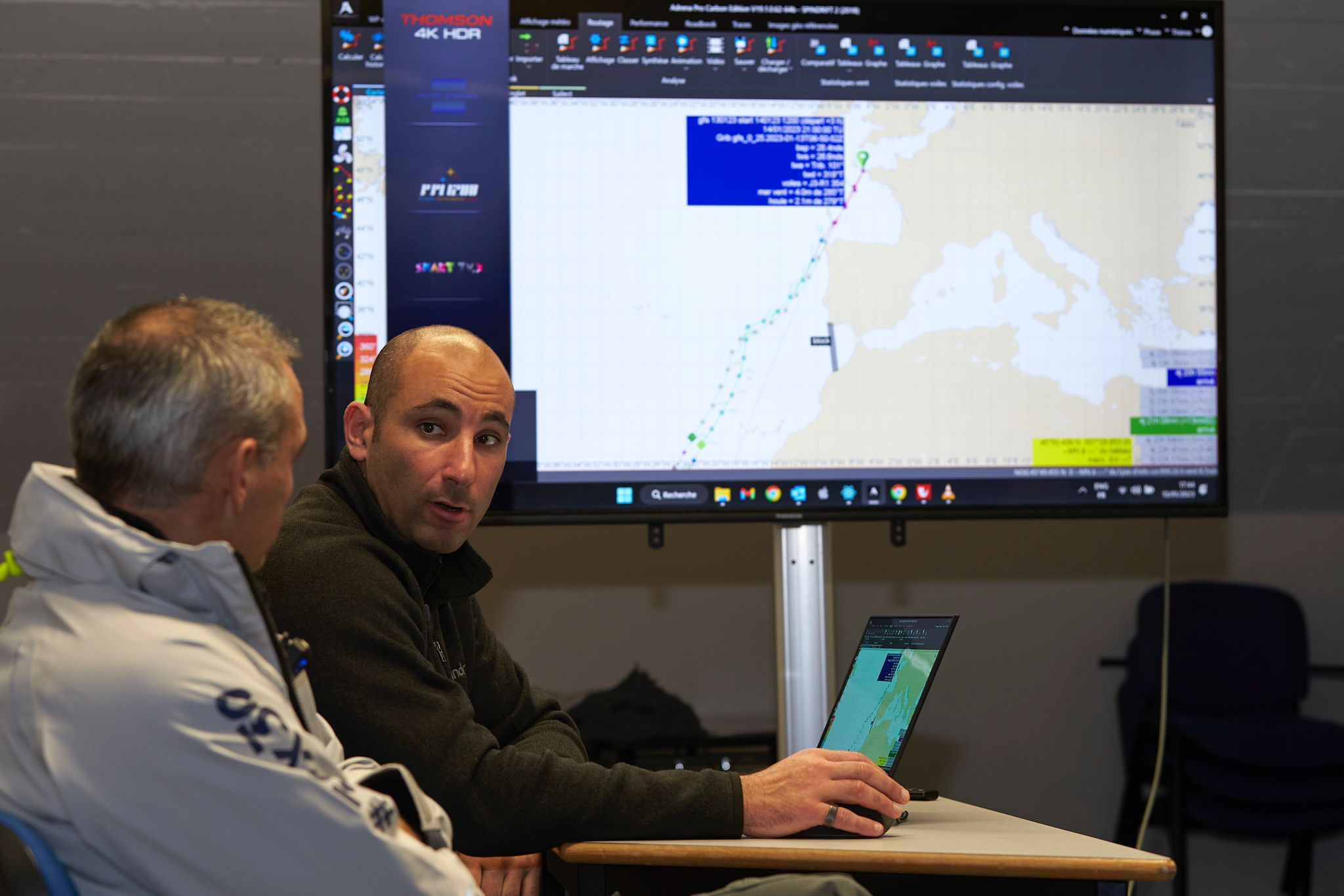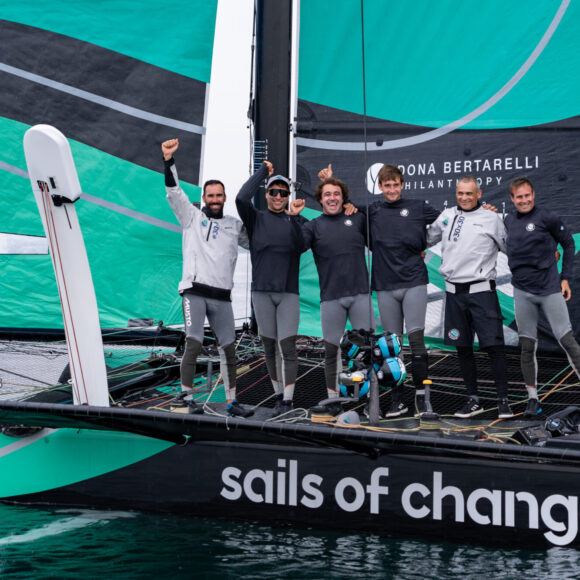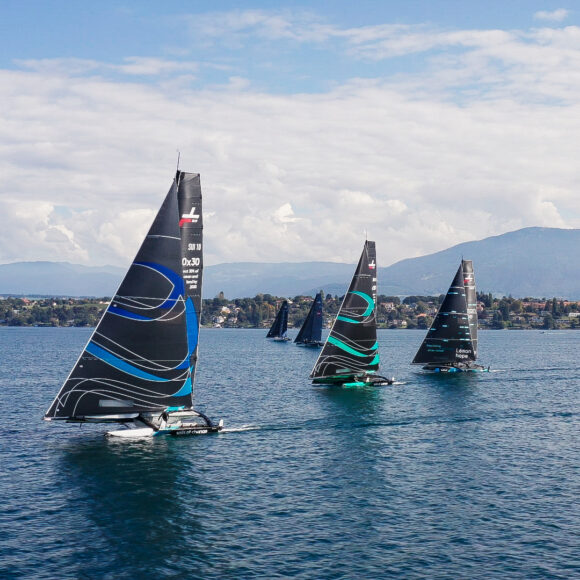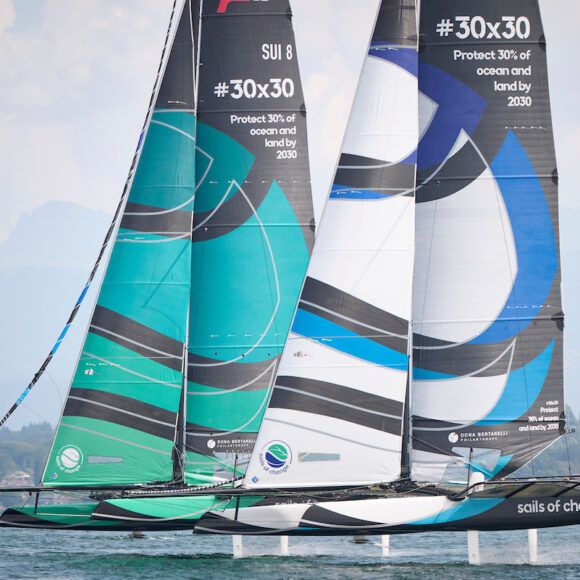Yann Guichard, Benjamin Schwartz and the Sails of Change router, Jean-Yves Bernot, continue to watch for the slightest weather window that would give the team an opportunity to start their round-the world Jules Verne Trophy record attempt. The current weather situation would unfortunately not get the team to the Cape of Good Hope within around 12 days, which is the reference time required to break the record currently held by IDEC Sport*.
The lovely weather and light easterly wind that is sitting over France at the moment is deceptive. “The situation is atypical,” explained, Jean-Yves Bernot. “The high-pressure system centred over France would mean starting in an easterly wind and connecting up with a front to head south.” In fact, the routing models to the Equator over the past 48 hours have been good, predicting five days to get to the gate to the South Atlantic despite “less than ideal Trade Winds”. It is after that point that things start to go awry. “We can run all the routing models that we want, and even push the polars a bit, but there is no opening into the South,” said Benjamin Schwartz, Sails of Change navigator who is in regular contact with Yann Guichard and Jean-Yves Bernot. The St. Helena High, which is extensive both in terms of longitude and latitude, is blocking access to the South Atlantic and will prolong the route to the lows in the Indian Ocean considerably, as we’ve seen with The Ocean Race competitors over the last few days. “Without being able to get around the high, the best time we could expect to the Cape of Good Hope would be 13 days,” added Benjamin. “And that is 24 hours too long compared to Francis Joyon’s time.”
It’s worth remembering that IDEC sport had a very fast Indian Ocean leg, which means that today’s record challengers must capitalise on the Atlantic leg to avoid chasing the clock for the rest of the circumnavigation. Sails of Change have extended their stand-by period to the end of February to enable them to take advantage of better opportunities for a fast Atlantic passage.
The crew of Gitana 17 took the weather window yesterday (Sunday) to make their attempt on the record. “The North Atlantic is good, and they have the speed and agility required for sailing the light winds of a high-pressure system, something that we don’t have,” explained Benjamin Schwartz. “As far as we are concerned, despite trying to push our polars a little bit, the bottom line is that it doesn’t work for us. We still have 20 days of stand-by and we are focussed on our objective knowing the potential of our maxi-trimaran.”
*The round-the-world Jules Verne Trophy record was set at 40 days 23 hours 30 minutes and 30 seconds in 2017 by the crew of IDEC Sport.



